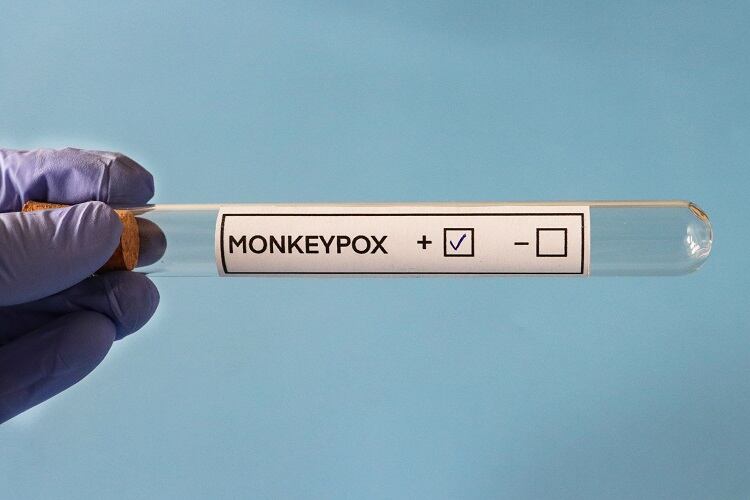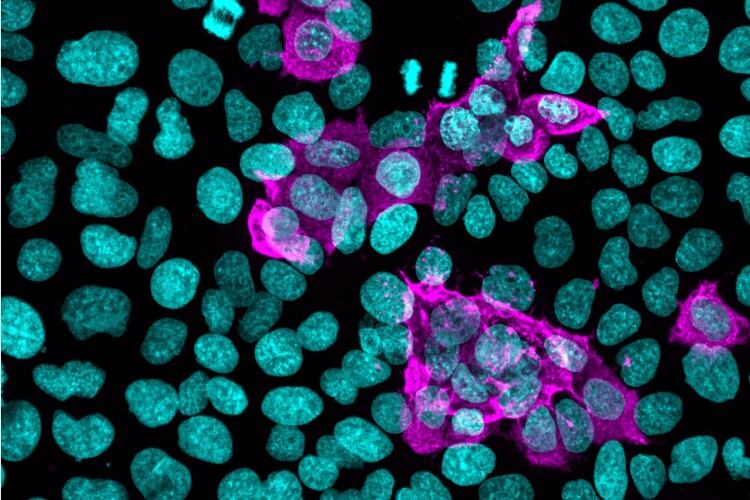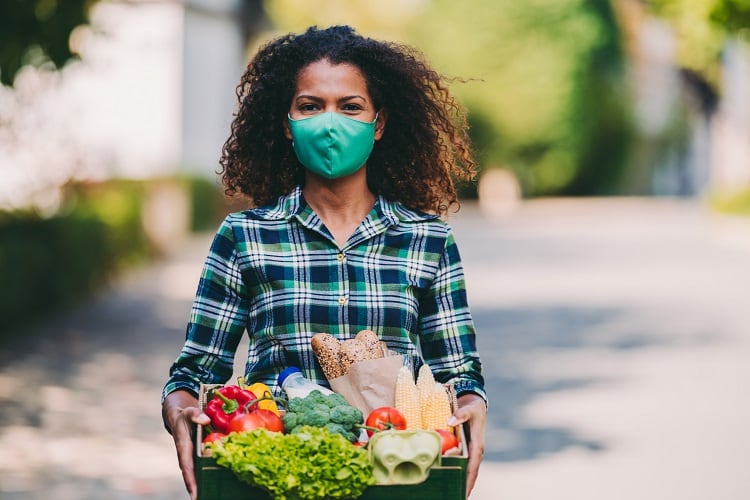The monkeypox outbreak has been declared a public health emergency by the World Health Organization (WHO). In Europe, more than 22,000 cases have been confirmed – making up more than a third of total cases worldwide.
While monkeypox virus is largely transmitted from one person to another, experts have queried whether food could play a role in passing on the virus.
An outbreak in non-endemic countries
Human monkeypox was first identified in Africa in 1970. Since that time, human cases of monkeypox have been reported in 11 African countries. In May 2022, multiple cases of monkeypox were identified in several non-endemic countries.
Monkeypox systems last from two to four weeks and can be divided into two periods. The ‘invasion period’ lasts up to five days and is characterised by fever, intense headache, swelling of lymph nodes, muscle aches and lack of energy. The ‘skin eruption’ period usually begins within the first three days of fever and is characterised by a rash with lesions.
As a viral zoonosis – with animal hosts including a range of rodents and non-human primates – monkeypox was originally transmitted to humans from animals. The current outbreak, however, has seen the virus transmitted via close contact with lesions, body fluids, respiratory droplets and contaminated materials such as bedding.
According to the WHO, vaccination against smallpox has been demonstrated, through observational studies, to be about 85% effective in preventing monkeypox. Other preventative measures include reducing the risk of human-to-human transmission.
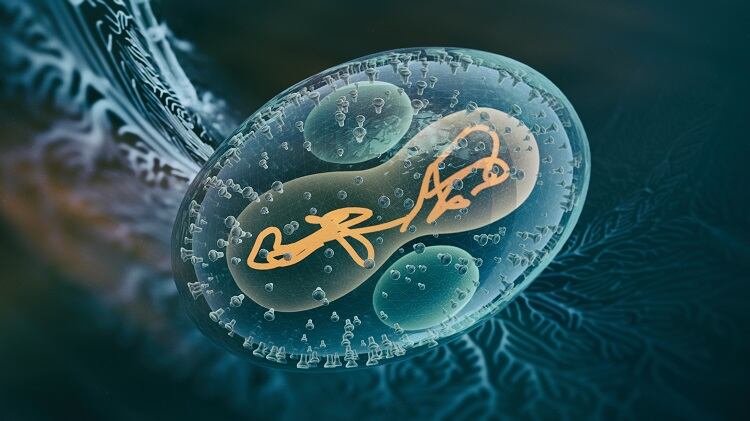
But what about food? Can what we eat be contaminated by someone with the virus, and transmitted via ingestion?
French food agency ANSES received an emergency request to assess the risk of transmission of monkeypox virus through food.
Risk of transmission through food ‘cannot be excluded’
To date, transmission of the virus by ingestion of contaminated food has not been proven.
However, based on the data available, ANSES the risk of transmission through food ‘cannot be excluded’.
“A food can thus be contaminated directly by a sick person, in particular if [it is in contact with] lesions or crusts on the skin. Food an also be contaminated after contact with a contaminated surface,” noted the food agency.
“Transmission to humans through food could then occur by ingestion or handling of the contaminated food.”
The European Centre for Disease Prevention and Control (ECDC) agreed contamination of food items by an infected person (e.g., food handlers) or through contact with surfaces contaminated by an infected person cannot be ruled out.
However, according to Dr Diamantis Plachouras, EDCD expert in antimicrobial resistance and healthcare-associated infections, it is ‘unlikely’ it plays ‘any significant role’ in the transmission of monkeypox.
“Following established hygienic principles for food preparation should practically eliminate any potential risk of transmission of monkeypox through food ingestion,” Dr Plachouras told FoodNavigator.
“Such principles for food handlers include not touching food with bare hands and not working when sick with an infection, particularly not with skin lesions – such as pustules – on the hands.”
The infectious diseases expert also stressed protocols should be taken in the home – including hand hygiene, proper cooking of food and cleaning of surfaces – to avoid contamination of prepared food. These measures, he told this publication, are ‘essential’ to minimise the risk of any foodborne infection.
Industry advice
For professionals working in the catering or food industry, France’s food agency suggested workers be made aware of the symptoms of the virus, so that they can declare themselves quickly in the event of infection and allow the ‘effective management’ of ‘contact persons’.
As the virus is persistent in the environment, ANSES recommended good hygiene be applied, including the cleaning and disinfection of equipment and the premises to limit contamination in areas that may have been frequented by infected people.
Contaminated meat risk?
Aside from the most likely transmission routes – in the majority of cases, monkeypox virus is transmitted directly through skin and mucosal contact or through prolonged face-to-face contact – people can be infected through contact with infected animals.
This can occur through a bite or scratch, or through preparation of meat and other products from infected animals in the wild, explained the EDCD’s Dr Plachouras. In endemic areas, eating inadequately cooked meat from infected animals in the wild (bushmeat) has also been implicated in transmission of monkeybox.
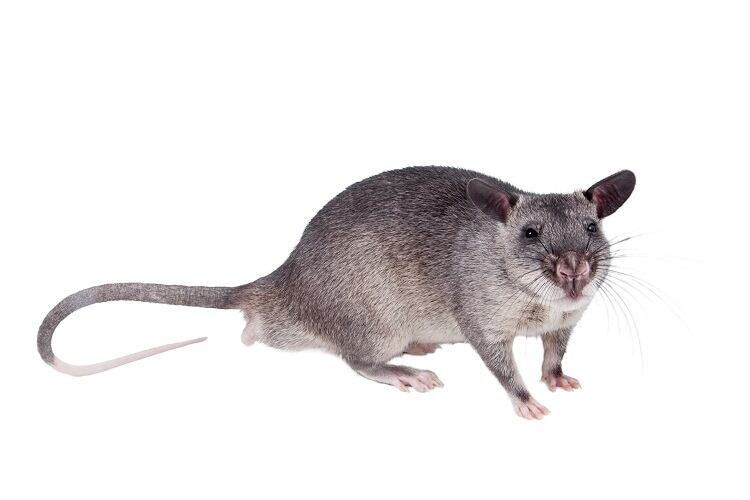
There have been no reports of foodborne outbreaks of monkeypox out of the setting, however, Dr Plachouras stressed. Which, he told us, indicates that becoming infected through ingestion of food items other than bushmeat inflected wild animals is ‘highly unlikely’.


